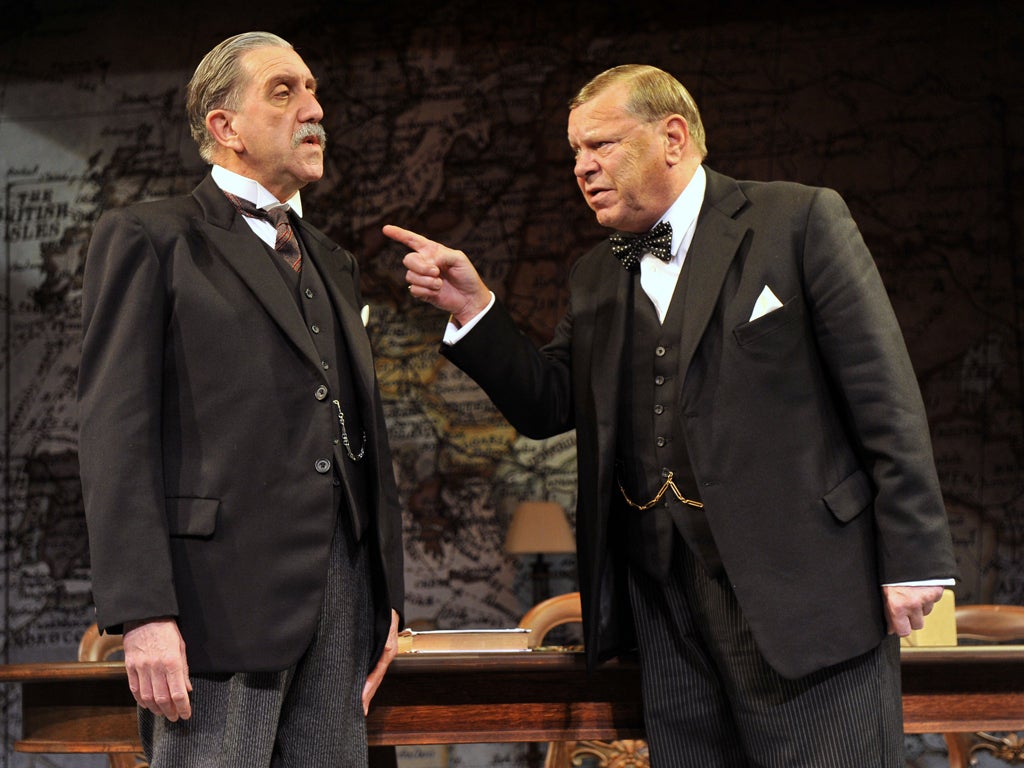Three Days in May, Trafalgar Studios 1, London
The lone warrior points the way in a riveting history lesson

The three days in question were between the 26th and the 28th of May in 1940 and you would be hard put to pinpoint a more momentous period in the history of the planet, especially if you're British.
Plain sailing then for a dramatist? Rather the reverse. With so much handed to him or her on the silver salver of historic fact, the risk of dropping the foreordained goods on the nylon tile flooring of the dog-eared and oft-rehearsed is thereby exacerbated. Ben Brown's rather riveting play has a twist that bypasses these problems.
It's predominantly set in meetings of the five-strong War Cabinet during that nail-biting juncture when Hitler's sweep across Europe had reduced France to the point of surrender and trapped our troops on the Continent. What to do? Use the unappetising Mussolini as a power-broker to sue for peace with the Nazis and get the ordeal over with – gone the most immediately advantageous terms? Or fight on alone, with no absolute guarantee that the US would ever enter the conflict?
It suited Churchill in his wonderfully well-written accounts of the war to make out that this was a no-brainer. "Future generations may deem it noteworthy that the supreme question of whether or not we should fight on alone never found a place on the War Cabinet agenda. We were much too busy to waste time on such unreal, academic issues". Brown trenchantly explodes that myth in a play that goes behind the official version to expose just how burning and precarious an issue this was.
For my money, it fails to make you feel that an alternative outcome was ever tremblingly on the cards. Jeremy Clyde as Lord Halifax (foreign secretary and principal proponent of modified appeasement) turns in an incisive performance and you register the cogency of the character's views. But it always seems a matter of when, rather than if, Churchill will get his way. Not that this is remotely an indictment of Warren Clarke's extremely sympathetic performance as the new PM. He pushes beyond impersonation to a position where the brandy-quaffing bulldog and finger-drumming victim of the black dog are humanely indivisible.
And yes, the play and Alan Strachan's absorbing production (performed on a set that superimposes a map of Europe over the whole proceedings) are a bit clunky – not so much three days in May as 3,000 cabinet minutes recorded by Churchill's 25-year-old secretary, Jock Colville (the likeable James Alper). But this is a salutary history lesson –as gripping as it is inspiring.
To 3 March (020 7492 1532)
Join our commenting forum
Join thought-provoking conversations, follow other Independent readers and see their replies
Comments
Bookmark popover
Removed from bookmarks